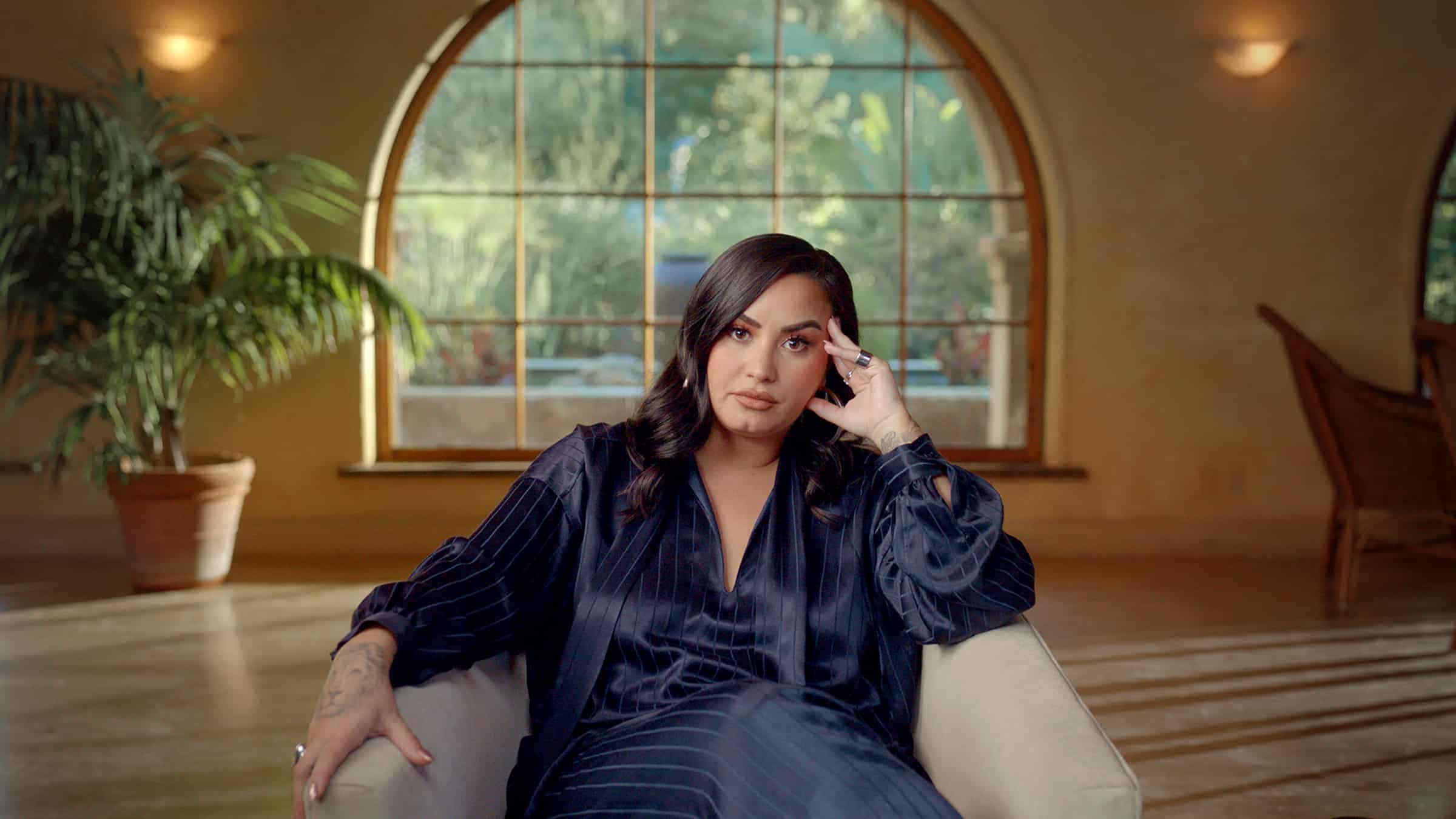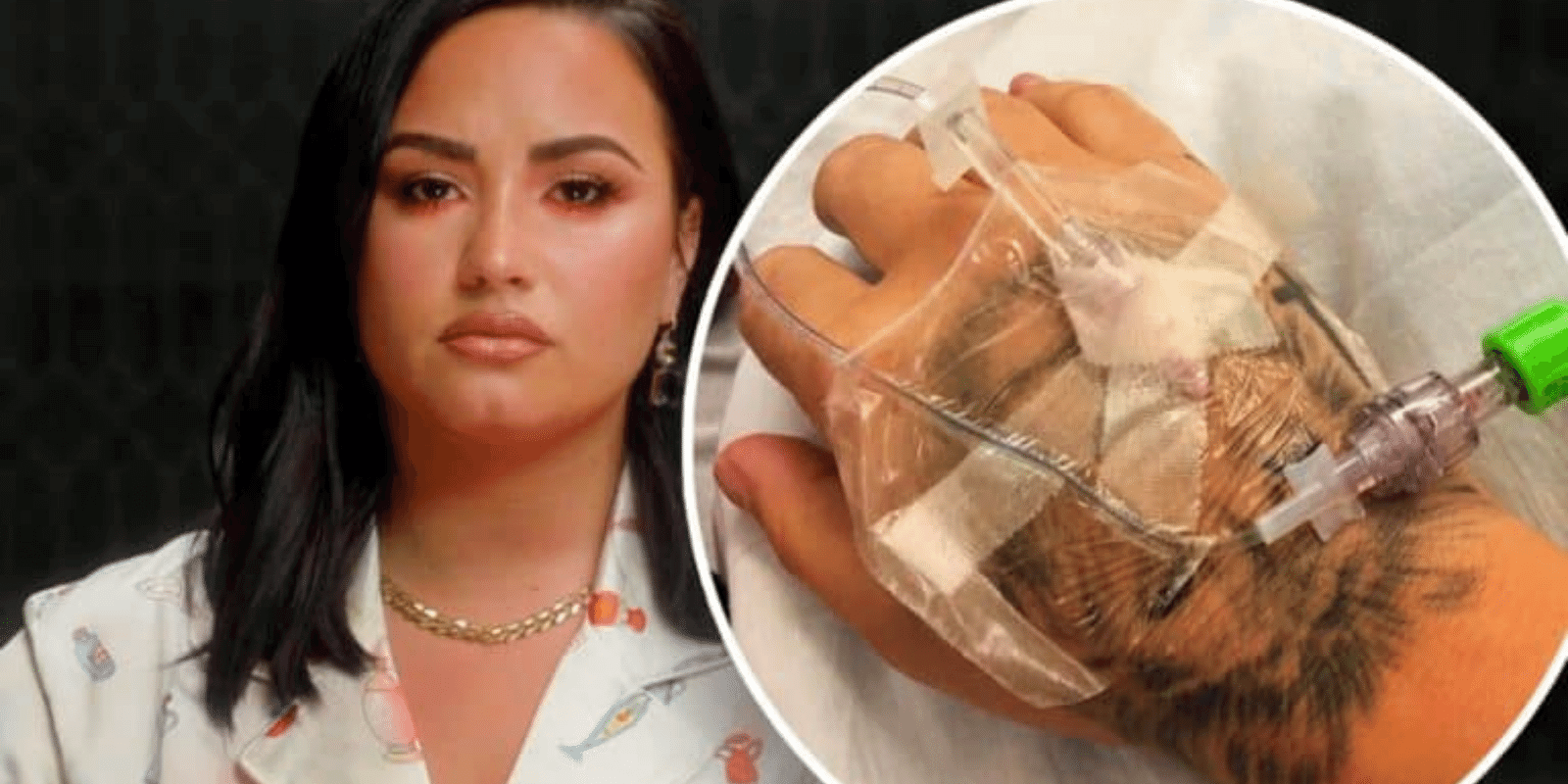Dancing With The Devil: Demi Lovato’s Story of Addiction and Mental Health


American singer Demi Lovato has been in the public eye for most of her life, having first appeared on television in 2002. Not only did Demi have other people controlling her future during developmental years, but drugs and alcohol took hold of her life as well, almost permanently.
What the public saw of Demi as a Disney star, influencer, and celebrity-that-OD’d was just the tip of the iceberg, and her recent documentary called “Dancing With The Devil: Demi Lovato” fills in the details.
We learn throughout the documentary that Demi Lovato experienced trauma throughout her childhood and young adult years. Her relationship with her father Patrick Lovato is a complicated topic, as he was in and out (but mostly out) of her life up until his death from cancer in 2013.
When Demi’s father was in the picture he was extremely addicted to drugs and alcohol and became abusive to her mother, sometimes while a young Demi was in the room. This combined with Patrick leaving the home when Demi was a young child instilled a psychological need for love and nurturing from a father figure.
She states that when it comes to her Dad’s effect on her addiction, she had “always searched for what he found in drugs and alcohol,” since he so often chose those substances over his family.
In the documentary, Demi talks about her mother entering her in beauty pageants as a young girl, which later led into her roles in television on Disney Channel, all before she turned 15.
Having grown up in the spotlight, an unrealistic amount of pressure was placed on Demi Lovato to be as thin, happy, and beautiful as possible, no matter what the consequences were. Demi was encouraged to follow strict diets in order to look like a celebrity was supposed to look, with every food she ate being policed and analyzed.
Throughout this time Demi developed an eating disorder and began starving herself and working out at an unhealthy rate. As she was diagnosed and dealt with her eating disorder, food became an emotional trigger and even more control was placed on her diet.
A few of the Demi’s friends and tour crew recall that they weren’t allowed to eat when Demi was not eating, nor were they allowed to eat certain foods around her.
“I didn’t control any of my life at that period in time.”
Though the control and discipline was thought to work for a while in helping Demi through her eating disorder, she mentions later in the documentary that it further instilled the unhealthy practices and self-hatred in her.
Ultimately, Demi states that it wasn’t until she discovered balance in her diet and life that she was able to mentally work through her eating disorder.
Another scarring event in Demi Lovato’s life is one that happens all too often but, like in her experience, is met with disbelief or victim blaming. Demi reveals that her first sexual experience was through rape, and by an unnamed celebrity she knew at the time.
She admits that it was extremely hard to emotionally deal with her rape, and felt a lot of guilt since she was one of the many Disney stars who shared their goal to wait until marriage to have sex. Being in the public eye, she felt that she couldn’t tell anyone and that if she did no one would believe her.
This fear came true when she mentions in the documentary that her “#MeToo” story involves her telling someone about the sexual assault, where she was met with disbelief while the unnamed actor who raped her went on to continue starring in movies.
Do you know someone who is a victim of rape or sexual assault? Read this article by RAINN (Rape, Abuse & Incest National Network) for tips to talk to and support victims of rape and sexual assault.
Dealing with her childhood trauma and mental health issues played a role in her beginning to use illicit drugs and binge drink alcohol, as is the case for many young adults. She explains that the drinking and numbness from her “drugs of choice” were just part of her touring and partying lifestyle, but underneath she was internalizing her issues and they grew deeper as time went on. After going through a rehab program for her eating disorder and a sober living program for her cocaine addiction in 2010 and 2013 respectively, Demi became the face of sobriety, recovery, and body positivity. At this time, however, she was still struggling with her own issues while appearing on talk shows and in publications to inspire young people. Demi’s family and friends comment often in the documentary about her ability to make herself seem normal and fine while she’s really in the depths of depression, self harm, and addiction.
In 2018, she celebrated 6 years sober with the below tweet.
Unfortunately, this was only a few months prior to her relapse and life-threatening overdose on July 24, 2018. A month before the overdose, Demi released a new song called “Sober” that told the world she had relapsed. It’s at this time in the documentary that she talks about how she got into heroin, the drug she ultimately overdosed on.
She’d been looking for Xanax (a common benzodiazepine) and cocaine when her drug dealer offered her crack and heroin instead. She started smoking heroin regularly and since she was not injecting it, said she did not think she could overdose.
Demi’s best friend explains that people battling addiction often do not relapse to the drug they had been using, but something stronger and more dangerous.
On the night of her overdose, Demi had some friends over to her house. Although she’d told her friends she was tired and going to bed when they left, she reached out to her drug dealer instead.
While the complete events of the night are unclear, Demi does remember doing drugs with the unnamed drug dealer that she now believes were laced with fentanyl. Fentanyl is a prescription drug that’s become more popular with illicit use in the past decade, and can be 100 times more potent than heroin.
It’s very possible that Demi’s overdose was due to heroin laced with fentanyl, but her medical team has not made the facts public. In addition to the mystery substance given to her by the drug dealer, Demi also reports that he sexually assaulted her that night.
Demi Lovato woke up in the hospital surrounded by her family, the day after she’d been found unresponsive by her assistant and rushed to the emergency room. She initially was unable to see, with doctors attributing this to the 3 strokes, heart attack, and multiple organ failure Demi suffered during her overdose. Doctors told her that had her assistant not called 911, Demi had about 5 to 10 more minutes to live. After regaining her sight and coming to terms with what really happened that night, she started the long road to emotional, physical, and mental recovery.
In addition to the trauma of the overdose and sexual assault, Demi mentions that she was left with brain damage from the experience. She says she doesn’t drive anymore because she has blind spots in her vision, and had a very hard time reading for a few months. Though she lives with the repercussions of her drug use and overdose, Demi states she sees them as a reminder of what could happen if she went down the same road.

At this point in the documentary, Demi begins to discuss the effect her drug use and overdose had on her family and friends, beyond the lasting impacts it’s had on her. Many friends and employees who became friends appear in the doc, including Dani Vitale who’s life was changed forever just because she was with Demi the night of the overdose. Dani was the creative director for Demi Lovato’s tours, and taught dance as well. She states that she lost all her clients and received an unbelievable amount of hate and death threats online for being with Demi the night of the overdose.
Her friends also lament that they were blamed for Demi’s actions as well, although they always supported her and continue to do so. Demi’s mom, step dad, and sisters speak about how devastating it was to witness her in the hospital after her overdose and to realize she had been abusing drugs in a way they had never been aware of. One of the most heartfelt moments in the show, however, comes when an off-camera documentary crew member asks each individual close to Demi the same question: “have you ever thought about giving up on her?” They all give the same reply, that they may get frustrated with their loved one and her disease of addiction, but they would never give up on her.
Demi states that although she was going through treatment and therapy since her 2018 overdose, it took until 2020’s COVID-19 quarantine for her to fully come to terms with herself and her actions. She says she is completely clean now of hard drugs, and only using alcohol and marijuana on occasion.
“Moderation” is a lifestyle that’s criticized in the recovery field, with many skeptics (including Elton John, who is featured in the documentary) stating blankly that it does not work.
However, Demi is headstrong in her decision to not be completely clean and still move forward in her recovery. She says that when it comes to illicit drugs,
“Realizing the high I wanted would kill me was what I needed to get me clean for good.”
Addiction is a strong disease, and Demi stresses that it’s taken time to rebuild the trust she lost from friends and family while struggling with drugs and alcohol. She has learned through the stages of change in addiction that healing and recovery are not linear.
It’s clear that Demi has been healing from more than just her addiction during quarantine. Her friends talk about how her eating habits have now found balance, and her eating disorder is under control. Mentally, Demi mentions that she is and always will be working through the trauma she went through during her developmental years, but is in a much better place. She says she is proactive with her mental health now, and communicates immediately with her therapists when she feels depressed. Although she still feels guilt from the pain her addiction caused the people around her, she is constantly working through it.
Her mental health has improved now that she’s taken time to learn more about herself and her sexuality. Though she broke off her engagement with actor Max Ehrich, she appeared in high spirits as she discussed her future embracing her “queer” self. Demi is back to producing music, with her new album “Dancing with the Devil… the Art of Starting Over” coming out right after the documentary aired. Though she has learned that her illness will never fully go away, Demi Lovato is surrounded by a loving support system and the help she needs.